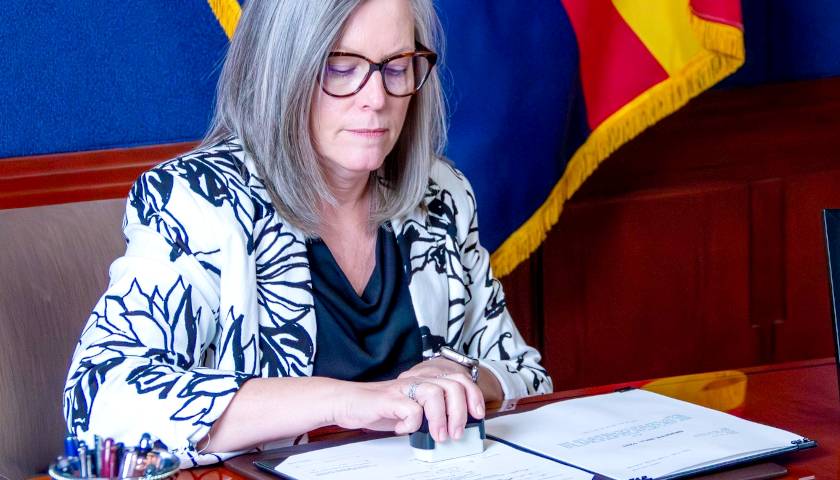by Robert Romano
Former President Donald Trump led among voters above the age of 30 years old in the latest Emerson national poll taken April 2-3 over incumbent President Joe Biden, who only led among younger voters 18 to 29, 50.2 percent to 39.6 percent.
Among 30-39-year-olds, Trump led 45.7 percent to 43.2 percent.
Among 40-49-year-olds, Trump led 45.5 percent to 44.7 percent.
Among 50-59-year-olds, Trump led 47.7 percent to 42.2 percent.
Among 60-69-year-olds, Trump led 49.4 percent to 45.6 percent.
And among 70-year-olds-and-older, Trump led 50.3 percent to 46.7percent.
But in each of those demographics, there were swaths of undecideds with 10.3 percent of 18-29-year-olds, 11 percent of 30-39-year-olds, 9.8 percent of 40-49-year-olds, 10.6 percent of 50-59-year-olds, 5 percent of 60-69-year-olds and 3 percent of 70-year-olds-and-older still uncertain which candidate to choose in the hypothetical two-way race.
And among the undecideds, when disclosing whom they are leaning towards, Biden leads 18-29-year-olds 55 percent to 44 percent, Trump leads 30-39-year-olds 51.1 percent to 48.9 percent, Trump leads 40-49-year-olds 51.1 percent to 48.9 percent, Trump leads 50-59-year-olds 53.1 percent to 46.9 percent, Trump leads 60-69-year-olds 51.9 percent to 48.1 percent and Trump leads 70-year-olds-and-older 51.7 percent to 48.3 percent.
Consequentially, when all undecideds are on the table, Trump’s older American advantage still had him leading the poll with leaners 50.6 percent to 49.4 percent over Biden.
Interestingly, when Robert F. Kennedy, Jr. is thrown into the mix, the former Democrat takes just as many votes from Biden and Trump, with Trump still leading 43 percent to 42 percent.
Afterward, Biden leads 18-29-year-olds 45 percent to Trump’s 31 percent and Kennedy’s 15 percent, Trump leads 30-39-year-olds 47 percent to Biden’s 38.6 percent and Kennedy’s 7.4 percent, Biden has a slight edge on 40-49-year-olds with 40.1 percent to Trump’s 39.2 percent and Kennedy’s 9.2 percent, Trump leads 50-59-year-olds 44 percent to Biden’s 38.8 percent and Kennedy’s 8.5 percent, Trump leads 60-69-year-olds and 70-and-above 48 percent to Biden’s 44 percent to and Kennedy’s 3.5 percent.
Undoubtedly, persistent economic concerns like inflation and the high cost of goods and services that are attributable to higher income and age factor into a volatile general election ballot, with opposition candidates Trump and Kennedy combined receiving 51 percent of the vote.
When all the age groups are combined, that is a persistent majority vote in opposition to the incumbent with pent-up frustration that usually means voters are saying it’s time for a change.
– – –
Robert Romano is the Vice President of Public Policy at Americans for Limited Government Foundation.




